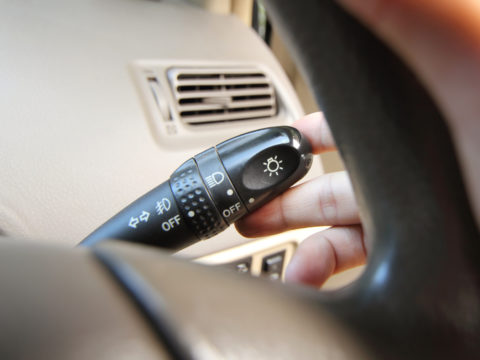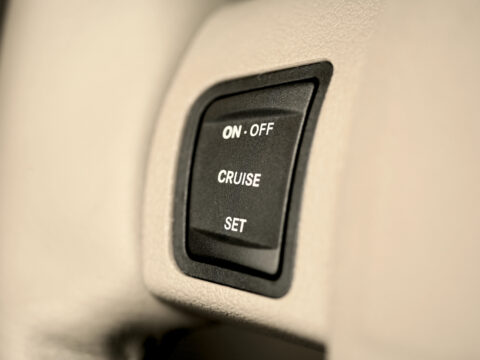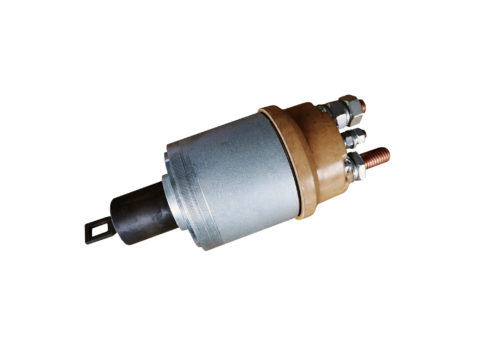If you have a bad starter you might not be able to get the car to where it can be fixed. This is why it is important to understand the bad starter symptoms before disaster strikes.
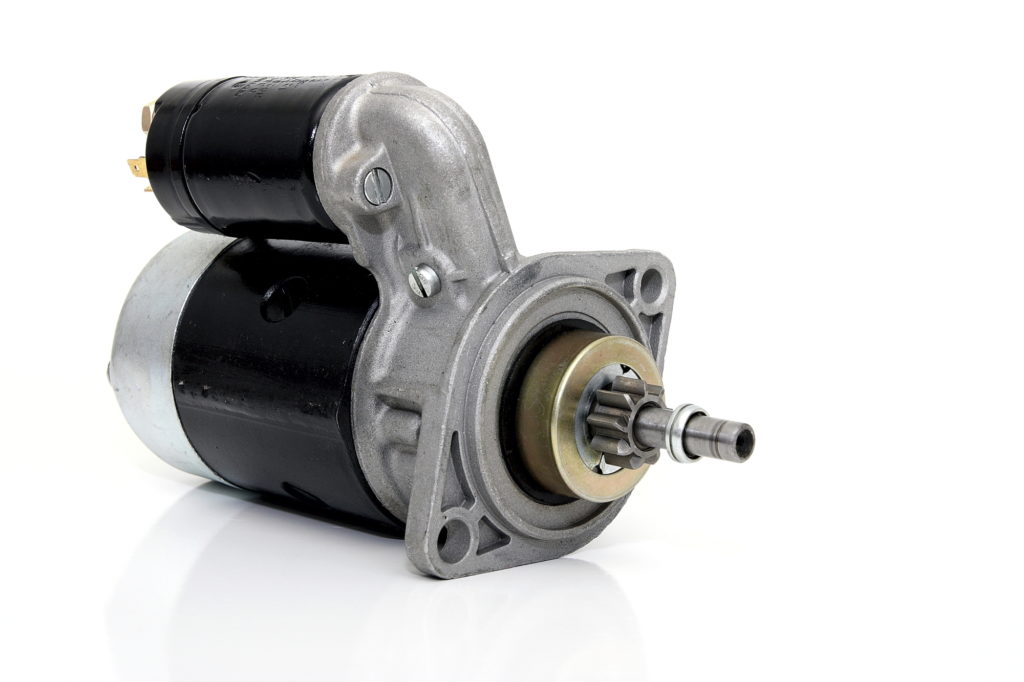
Symptoms of a bad starter include:
- The Car Sounds Different
- The Electrics Work, but the Engine Doesn’t
- The Engine Won’t Crank
- You Smell or See Smoke
- The Starter is Oil Soaked.
Contents
What does a starter do in a car?
The starter is pretty self-explanatory in that it is the component that starts the car. It is a small battery-powered motor that rotates the internal combustion engine crank, converting the electrical energy generated by the battery to mechanical energy. The starter relay is located between the starter motor and the car battery.
The battery powers the starter solenoid, which transfers the energy to the starter motor, and it also aligns the starter gear with the flex plate. The engine is then cranked by the starter motor where the fuel and oxygen mix, allowing combustion and moving the vehicle.
Where is the starter located?
A car’s starter will typically be located in rear-wheel drive vehicles beneath the exhaust manifold on the passengers’ side. Front-wheel drive vehicles would usually have their starter beneath the exhaust manifold or above the transmission on the driver’s side.
Starter motor diagram
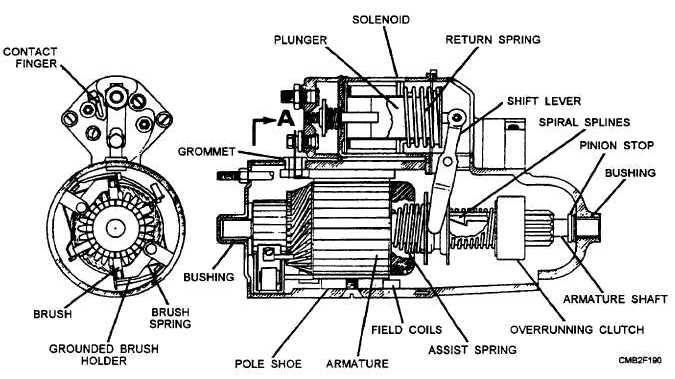
What happens to a car when the starter goes out?
If your car has a bad starter and it completely fails, you will no longer be able to start the vehicle.
Symptoms of a bad starter
Understanding the symptoms of a bad starter can help you avoid the inconvenience and cost of dealing with a full replacement or car that refuses to start.
The car sounds different
One of the first signs that you might have a faulty starter is a clicking sound when you try to start your car. A grinding noise or even a whining noise can also happen as a starter dies, but it is not always the case. Always try to listen out for any strange noise from your car, as it could be a sign that something is wrong.
The electrics work but the engine doesn’t
If you are trying to start your car and the control panel lights up, but the engine doesn’t start, it is likely that the vehicle is suffering from starter problems.
The engine won’t crank
If your engine is not revving and even a jump start won’t help, a starter problem is likely the cause.
You smell or see smoke
As part of the electrical system within a car, repeated attempts to start the vehicle can cause fuses to blow and the starter to overheat. Seeing or smelling smoke is a clear sign that you should stop trying to start the car and seek assistance.
The starter is oil soaked
A bad starter can sometimes be because of other engine problems. Regularly checking under the hood for leaks can help to prevent such issues. Oil leaks that soak the starter can be expensive to resolve.
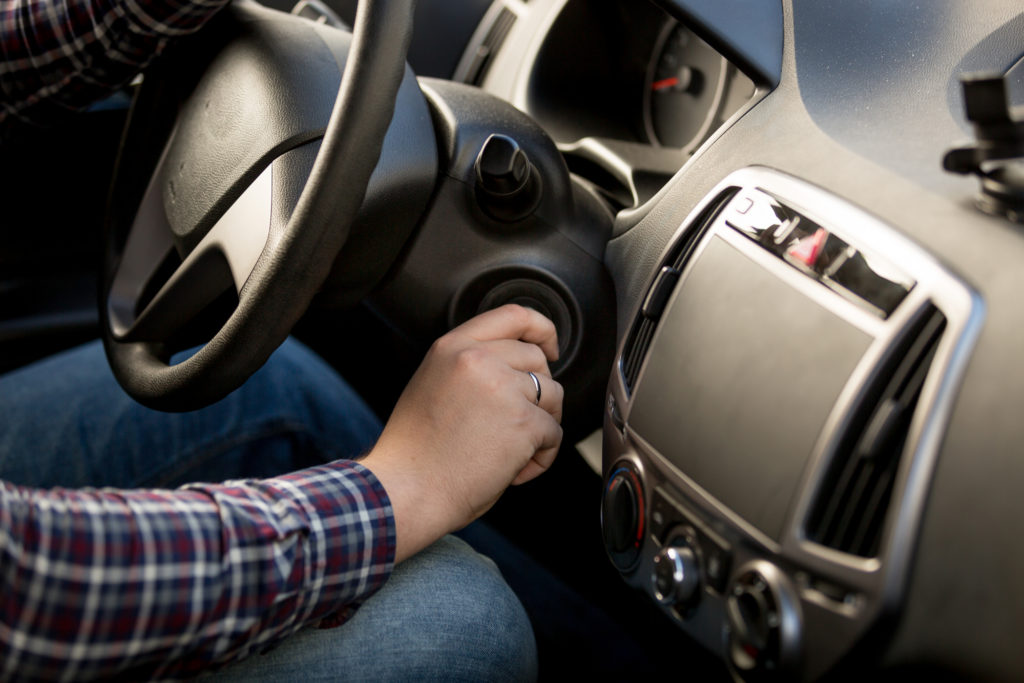
What causes a starter to go bad?
Knowing the symptoms of a bad starter can help you get the problem repaired before it worsens. Understanding the causes of bad starters can help you make changes and minimize their risk.
Loose wiring around the starter
As part of the engine’s electrical system, loose wiring coming from or going into the starter can be a common cause of starter issues. This can be caused by work being carried out close to the starter or from the vibrations of the engine.
Corroded or dirty connections
Corrosion and dirt in circuitry can be a significant problem in cars, especially in damp weather. Regularly checking should help to prevent this and allow you to carry out any replacements to keep the system running.
Corroded battery
Battery power is needed for the starter to work, and a corroded battery can fail to work or cause other issues in the starter system.
Worn out starter parts
Because the starter is made up of a number of components, any one of these wearing out or becoming damaged can cause the starter to fail.
Oil leaks
Engine oil leaking onto the starter will cause major problems. Regular engine checks should help you to spot any leakage and deal with it.
Fuse issues
Cars are usually home to two fuse boxes, and a blown fuse will affect the starter and mean it won’t be able to function. Replacing the fuse will resolve the issue.
Troubleshooting Starter Problems
If your car won’t start and you have tried jump-starting it to no avail, the following troubleshooting tips should help you diagnose and fix a bad starter.
Check beneath the hood
The first thing you should do is check under the hood to see if there are any apparent causes such as an oil leak, weak battery, dead battery, faulty or loose battery cables, loose wiring, or corrosion.
Tapping the starter
Tapping the starter gently can help to reconnect electrical components. This is obviously not a long-term fix, and if it does work, the car should be taken to a mechanic to fix the loose connections.
Adjust transmission
Switching the transmission from park to neutral can sometimes work and signify the issue with a bad neutral safety switch.
If these troubleshooting tips don’t work, you will need to get your car towed if a mechanic is not able to offer roadside assistance. Before calling, always double-check the obvious such as whether your gas tank is empty. This might seem obvious, but f you are focused on one problem, it might escape your attention to check.
How much does it cost to replace a starter?
Starter repairs or replacements will vary in cost depending on the issue, make and model of the car, and complexity of the job.
Starter prices can vary in cost, and you could expect to pay anywhere between $100 and $500. You might have a better idea of your regular mechanic’s labor costs, but the average cost of labor should vary between $100 and $350.
FAQs
How long do starters last?
A car starter can last for the full lifetime of the vehicle. Typically, you could expect your car’s starter to last for between 100,000 and 150,000 miles.
Good maintenance and even your location can make a difference in how long your starter will last, with starters on vehicles being run in warmer regions lasting longer on average.
How long can you drive with a bad starter?
If you have a faulty starting system but can get the car to start by persevering, it should not affect the vehicle’s running. However, if the signs of a bad starter are starting to appear, it is probably a matter of time before you are unable to start the car.
After noticing the signs of a bad or failing starter, your priority should be to get it to a mechanic as soon as possible. Leaving it could result in such a scenario as the car failing to start when you have an emergency, are trying to get home late at night, or need to get to work.

